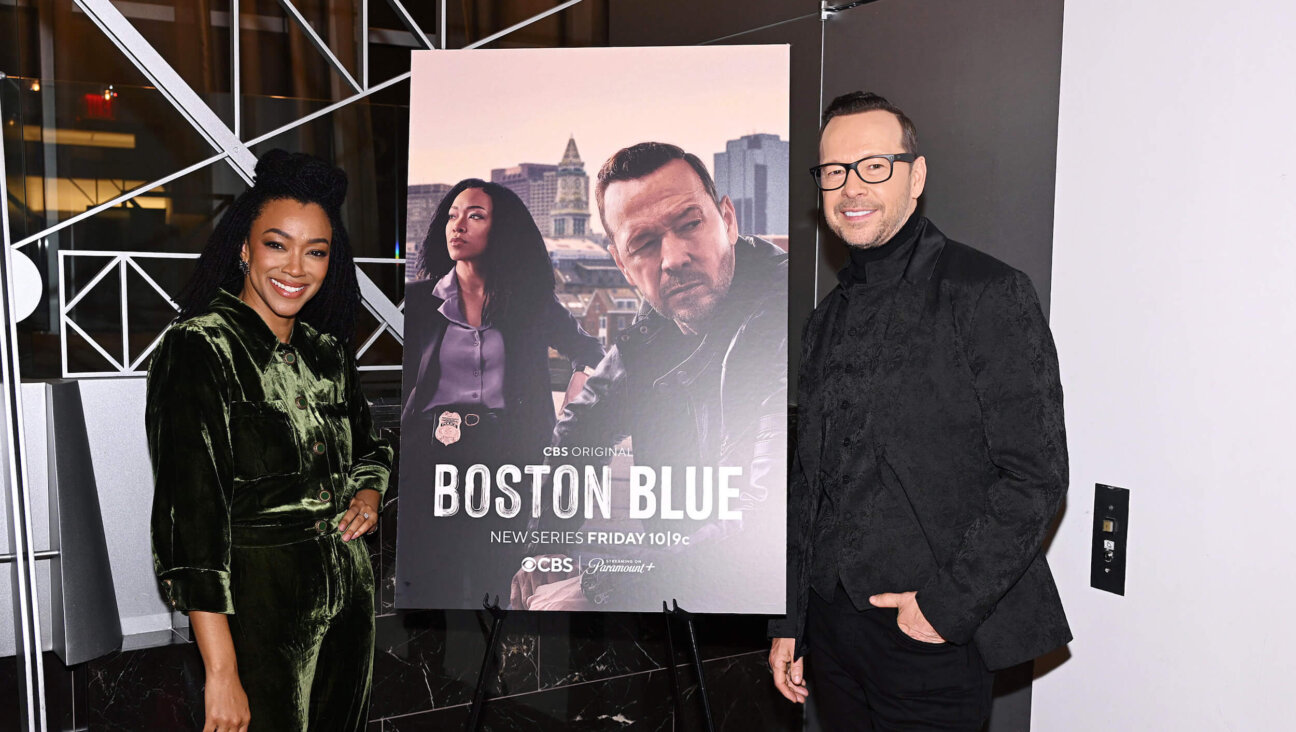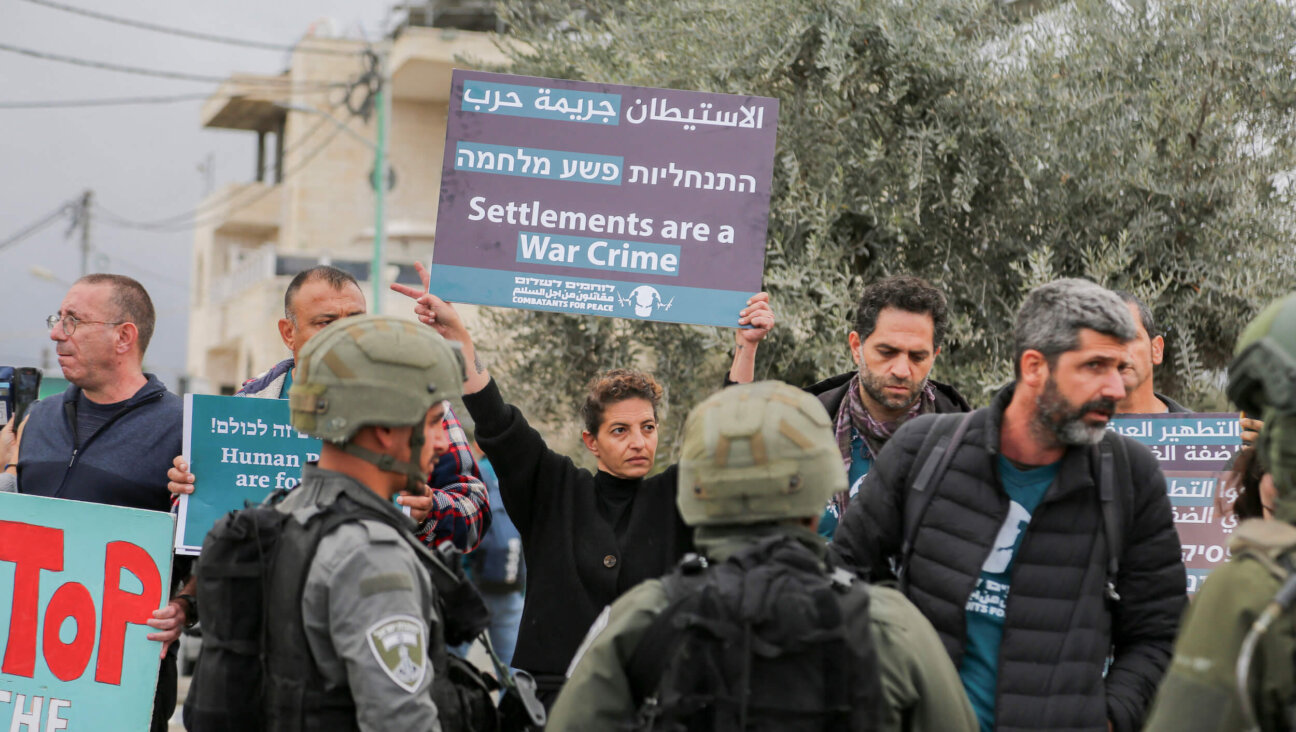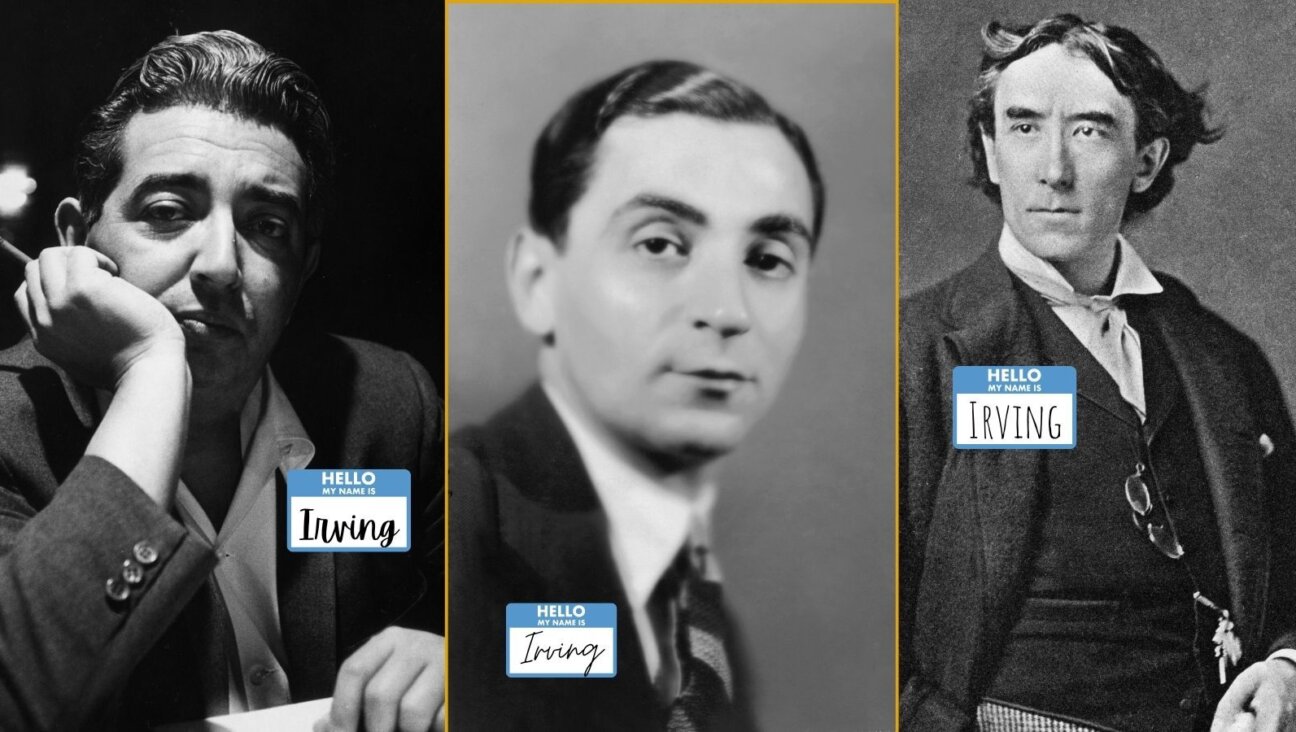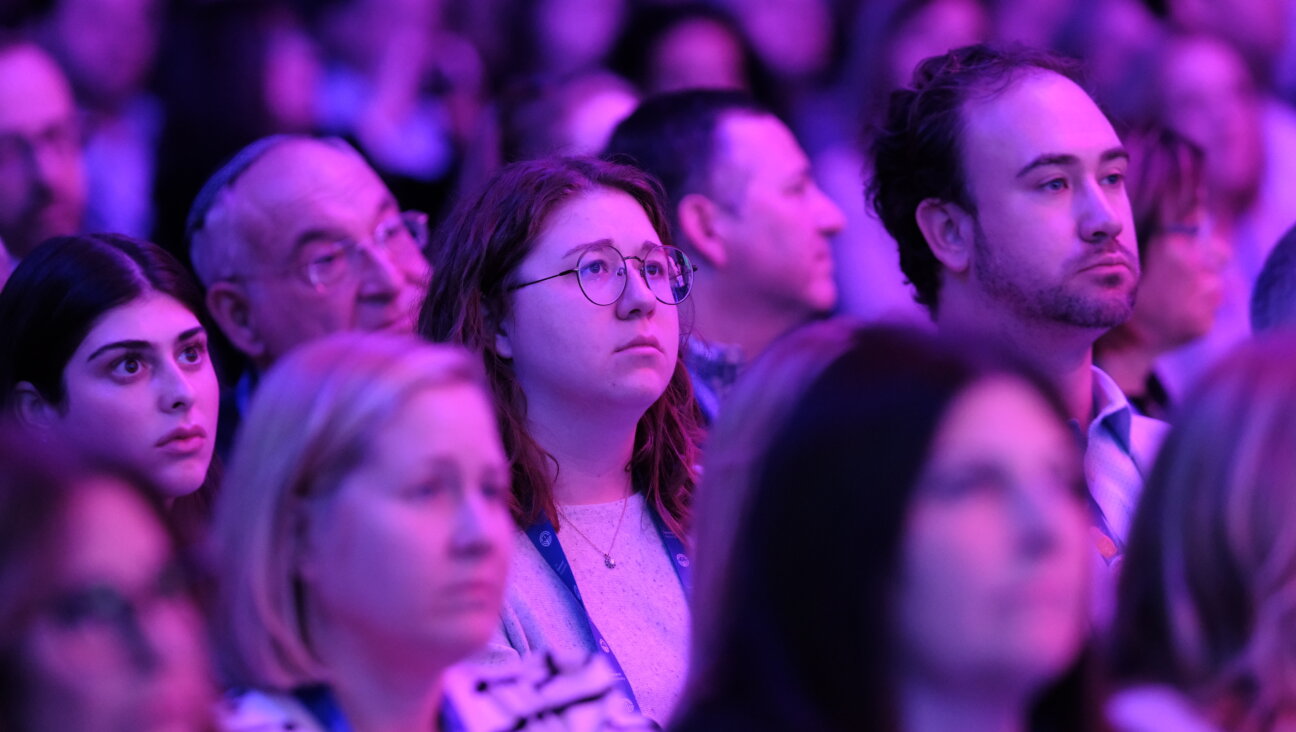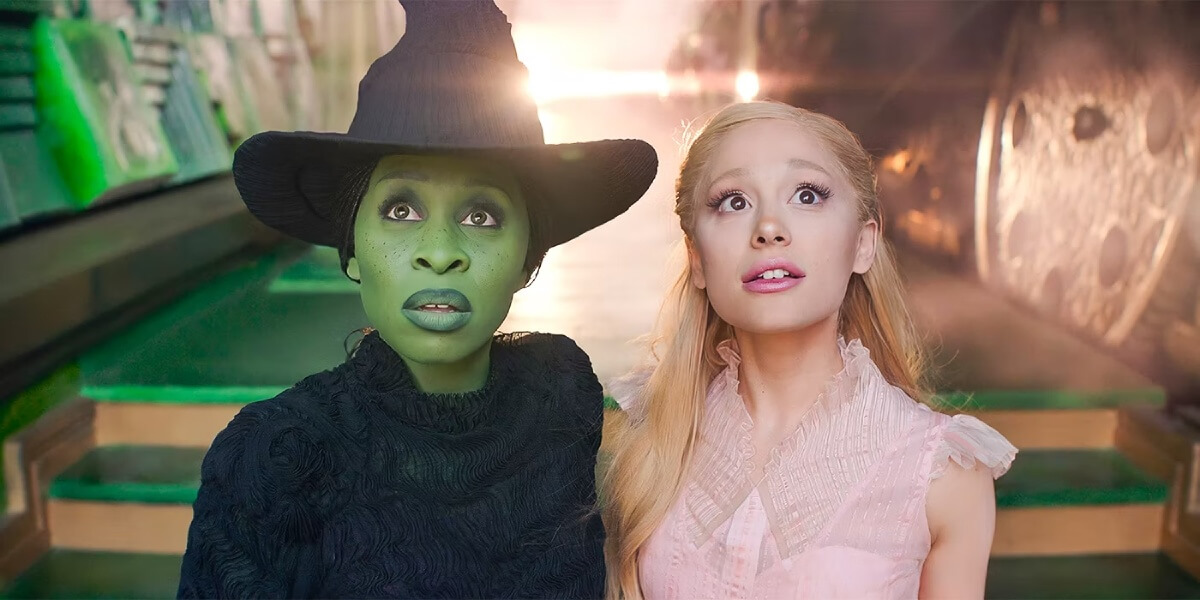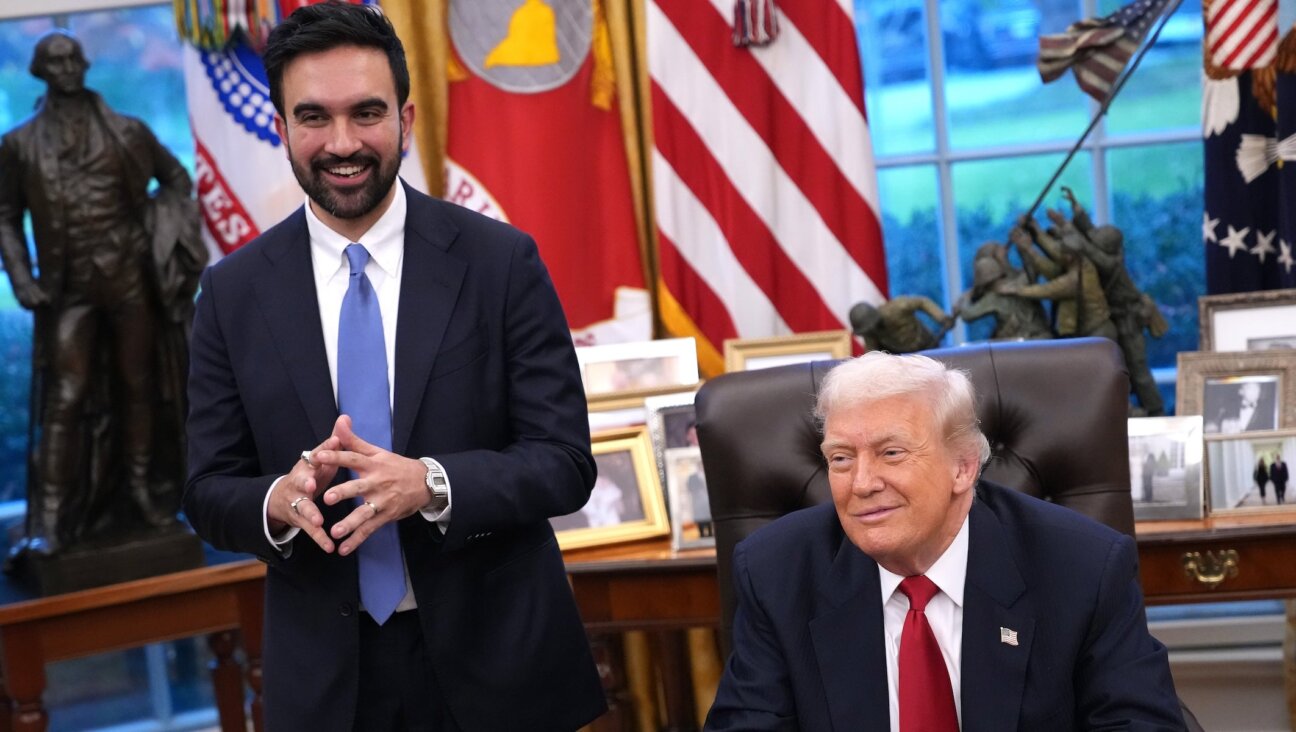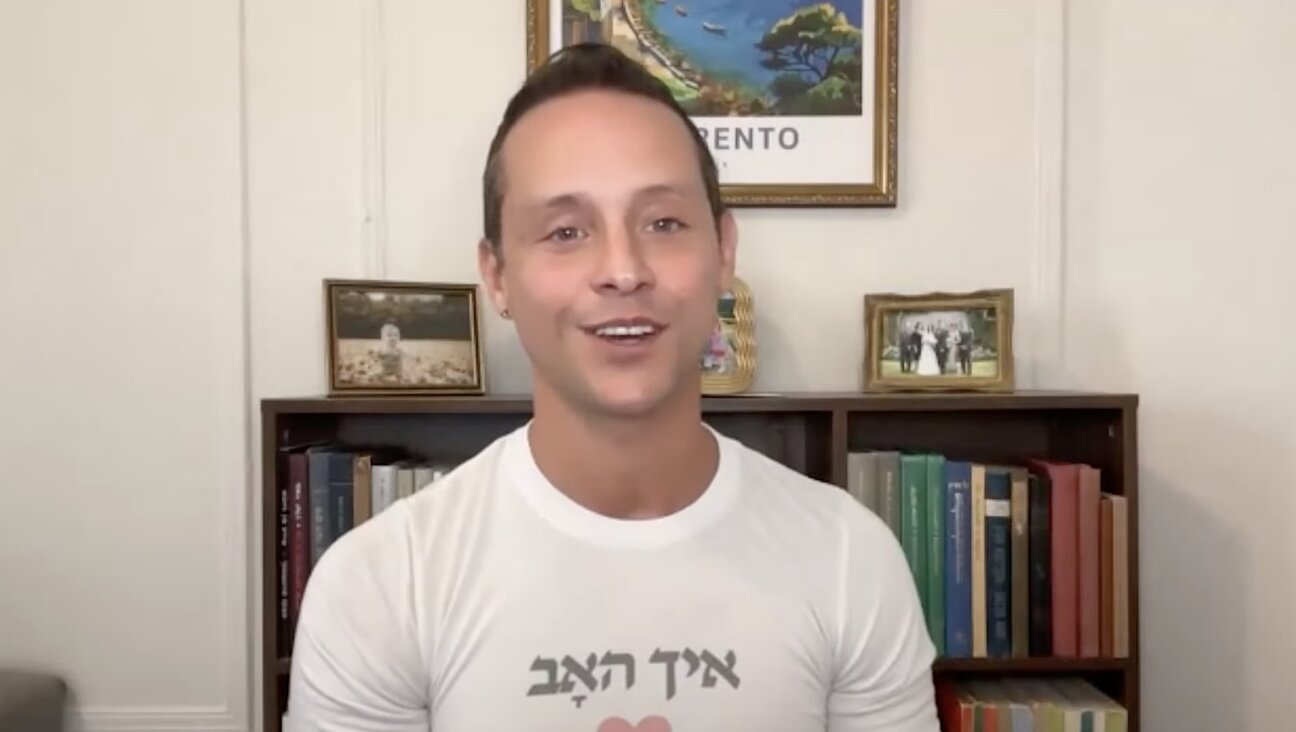The Sound of Silence

Graphic by Angelie Zaslavsky
In the video broadcast widely on Israeli television, Salim Joubran was staring straight ahead, his square face quite still but for his eyes, which occasionally darted back and forth. Oh, and his mouth. That was the key feature here. It was fixed in a closed, downturned shape, the opposite of a smile. And it didn’t move.
Joubran has been a permanent member of the Israeli Supreme Court since 2004, the first and only Arab Israeli to receive such an august appointment, and one can imagine that his quiet refusal to sing “Hatikvah,” the Israeli national anthem, at a February 28 event was probably not the first. Nor was it the first time that a high Arab official in the Israeli government stood in silence when the anthem was played.
But this time, the TV cameras caught Joubran in the act, and for that, he was pilloried and, thankfully, also defended.
As relatively modern inventions, national anthems often are tasked with representing broad patriotic emotion while acknowledging singular ethnicities and heritages. So the Canadians sing in both English and French, and the Swiss have lyrics in French, German, Italian and Romansh, and the post-apartheid South African anthem incorporates five of the country’s 11 official languages.
“Hatikvah” has a more complicated provenance for some Israeli citizens. It beat out Psalm 126 (“Shir Ha Ma’alot”) to become the official anthem of the Zionist Conference, and it is based on a poem written in 1886 that was put to a melody initially inspired by a Central European folk song. It was not born a sacred text; it became one.
It did so by molding to new circumstances. The refrain of Naftali Herz Imber’s original nine-stanza poem spoke of “The ancient hope/ To return to the land of our fathers / The city where David encamped.” Only after the State of Israel was born did the words reflect a new reality: “The hope of 2,000 years / To be a free people in our land/ The land of Zion and Jerusalem.”
Ponder these words, and it’s immediately apparent why Joubran and other members of Israel’s Arab minority — 20% of its citizenry — might feel uncomfortable giving such sentiments their full-throated approval. The opening stanza of “Hatikvah” expresses the yearning of the “nefesh yehudi,” the Jewish soul, a stirring expression for Jews the world over, but hardly an inclusive message to those who don’t share that blood and faith.
(video of Salim Joubran follows commercial)
Unfortunately, a few vulgar nationalists in the Knesset seized on Joubran’s silence to further alienate the alienated. David Rotem said the justice should be forced to resign, suggesting that if he objected to “Hatikvah” he should “find a state with an appropriate anthem and move there.” (Joubran, by the way, was born in Haifa in 1947. Not exactly fair to ask him to relocate.)
Fortunately, this ugly bullying was denounced by other Knesset leaders, including Deputy Prime Minister Moshe Ya’alon, from the ruling Likud party. “The entire Likud movement would do well to unite behind Ya’alon’s remarks, if it claims to continue in the footsteps of my grandfather,” wrote Ze’ev Jabotinsky, who shares a name with his famous grandfather, a man no one would suggest was anything other than a fervent Zionist.
Perhaps the most gratifying ending to this story would be a broad movement within Israel to do something — change a few words, add some Arabic — to make “Hatikvah” a national anthem that was both Jewish and democratic, particular and inclusive, a song that could be sung by all its citizens. Is that overly idealistic in this harsh and divisive political climate?
Or, instead, must we simply hope that the next time Justice Joubran declines to sing a song he cannot sing, that his polite and appropriate silence be greeted with respect? His behavior — so unlike the Haredim who stomp out of official ceremonies if a woman dare sing — could stand as a message that Israel’s democratic vision is yet unfulfilled. Perhaps the best way to encourage him to join the chorus is to help bring about a society that can embrace all its citizens in song.

